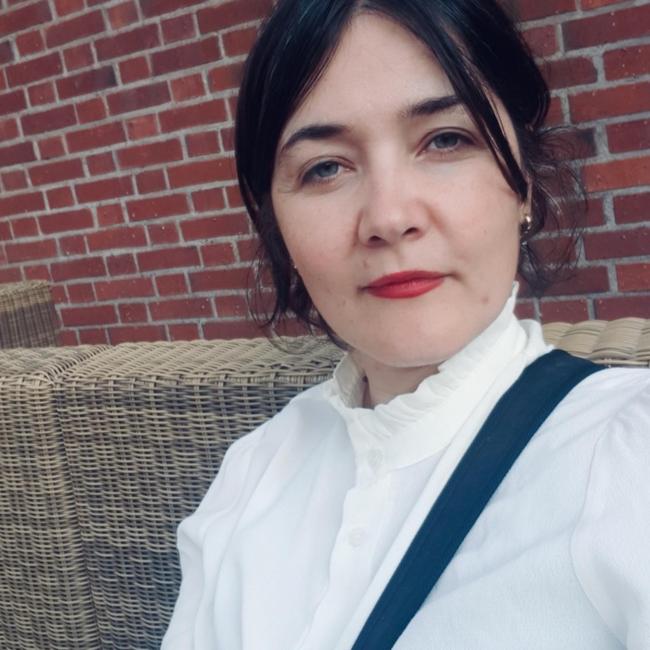Svetlana Chuikina

Forskning
Attentive publics:
Infrastructuring the Frontier of Russian anti-war movements.
Currently, in the wake of continuing Russian warfare in Ukraine, many among the politically
active youth have left the country and become part of (re)construction of the Russian anti-war movements. The study recognises the process of movement constitution as a continuum unfolding in time and space and in accordance with the ‘mediatisation’ of everyday life. The anti-war movements, as “networks of informal relations” (Della Porta & Mattoni, 2014), are not entirely new. They have emerged as an overlap between publics (so-called followers) and the core activists, those who for years were in contention (Tilly, 2008), involved in parties, organizations and other informal forms of citizen solidarity.
The primary interest of this study is to examine the communicative space in between, bridging activists and publics in the process of ‘politicisation’ (Erpyleva, 2018). There are earlier and more technologically oriented studies on digital audience participation in political action, many based on the ‘network’ metaphor (Castells, 2007), or on the concept of ‘connective action’ (Bennett & Segerberg, 2012), explicitly focused on mobilisation of ‘crowds’ (Kavada, 2018) in event time. The technological approach, however, has been criticised for overemphasising the role of platform connectivity (Poell & Van Dijck, 2015) in the constitution of movements, while overlooking the role of broader audience and publics which, via communicative interaction of everyday life, generate a sense of “collective” among a multitude of individuals (Bakardjieva, 2015).
Drawing from the “ecological approach”, which points towards studying media as “dynamic systems” (Treré & Mattoni, 2016), and by recognising them as systems of affordances (Hutchby, 2001; Ingold, 2018; Jansson, 2022), this study calls for the recognition of the overlap between publics and activists as a process of frontier infrastructuring. I argue, along with others (Larkin, 2013; Knox, 2017); Grön et al., 2023), for treating infrastructures as part of social relations that become “infrastructure in relation to organized practices” (Star & Ruhleder, 1994), and as “vehicles oriented to addressees” (Larkin, 2013).
Going beyond platform infrastructures, the research is driven by the empirical question of how activists have been disentangling the pro-war consensus, by renegotiating the use of existing infrastructures for (re)orienting publics and organising a space of attention. This leads us to take a closer look at the phenomenology of attention which is intertwined with technological infrastructures, social practices and imagination.
References:
Bakardjieva, M. (2015). Do clouds have politics? Collective actors in social media land. Information, Communication & Society, 18(8), 983–990. https://doi.org/10.1080/1369118X.2015.1043320
Bennett, W. L., & Segerberg, A. (2012). The Logic of Connective Action. Information,Communication & Society, 15(5), 739768. https://doi.org/10.1080/1369118X.2012.670661
Castells, M. (2007). Communication, power and counter-power in the network society. International Journal of Communication, 1(1), 29.
Della Porta, D., & Mattoni, A. (2014). Spreading protest. Social Movements in Times of Crisis.
Erpyleva, S. (2018). The politicisation of Russian youth. New Eastern Europe, 01 (30), 7–13.
Grön, K., Chen, Z., & Ruckenstein, M. (2023). Concerns with Infrastructuring: Invisible and Invasive Forces of Digital Platforms in Hangzhou, China. International Journal of Communication, 17, 17.
Hutchby, I. (2001). Technologies, texts and affordances. Sociology, 35(2), 441–456.
Ingold, T. (2018). Back to the future with the theory of affordances. HAU: Journal of Ethnographic Theory, 8(1–2), 39–44.
Jansson, A. (2022). Rethinking communication geographies: Geomedia, digital logistics and the human condition. Edward Elgar Publishing.
Kavada, A. (2018). The intersection between online crowds and social movements in contemporary activism. The Routledge Companion to Media and Activism.
Knox, H. (2017). Affective infrastructures and the political imagination. Public Culture, 29(2), 363–384.
Larkin, B. (2013). The politics and poetics of infrastructure. Annual Review of Anthropology, 42, 327–343.
Poell, T., & Van Dijck, J. (2015). Social media and activist communication. Poell, Thomas & José van Dijck (2015). Social Media and Activist Communication. In The Routledge Companion to Alternative and Community Media, 527–537.
Star, S. L., & Ruhleder, K. (1994). Steps towards an ecology of infrastructure: Complex problems in design and access for large-scale collaborative systems. 253–264.
Tilly, C. (2008). Contentious performances. Cambridge University Press. http://www.loc.gov/catdir/enhancements/fy0810/2008005765-t.html
Treré, E., & Mattoni, A. (2016). Media ecologies and protest movements: Main perspectivesand key lessons. Information, Communication & Society, 19(3), 290–306.
Biografi
I am a Ph.D. candidate of the Department of Geography, Media and Communication at Karlstad University, Sweden. I study digital and datafied audiences in the time of ‘deep-mediatization’, when the ‘private’ and ‘public’ are increasingly intertwined. Bringing together debates on social movement construction, audience studies and affordance theory my research seeks to answer the question: How do digital and datafied tools bridge everyday media use and politics.
Prior to my Ph.D. at Karlstad university, I was involved in the research project Information Inequality in a Global perspective at the Department of Journalism, Media and Communication at Stockholm University. I hold a master’s degree in Media and Communication studies from Södertörn University, Stockholm. My thesis was on mediatization of memory in Russian context with the title “Commemorative practices: from the broadcast of Victory Parade to Stalin in internet-mems ”. Before that I worked as a news correspondent, editor and producer for independent media in Kazakhstan, Russia and Ukraine. My research interests include media theory, audience studies and a phenomenological approach to studying media spatialities and temporalities. I am a Ph.D representative of Geomedia research center.

